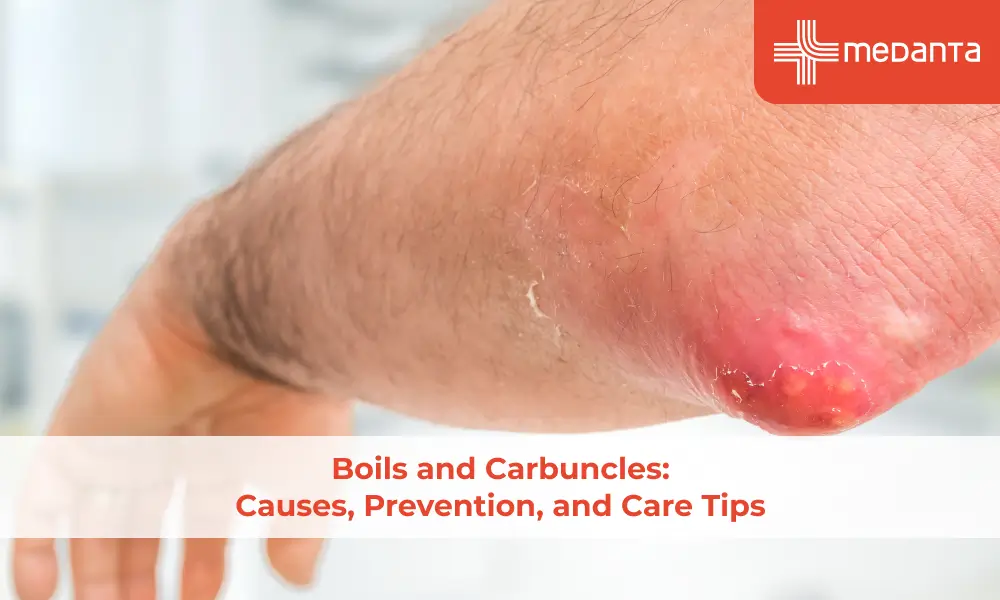Present-Day Health Hazards from Air Pollution and Climate Change

Air pollution and climate change have become increasingly concerning issues in the modern world. The effects of these hazardous events can be seen everywhere, from the melting of ice caps to the decline in air quality. In India alone, air pollution has caused more than two million premature deaths and an alarming number of respiratory illnesses. But what are some of the lesser-known present-day health hazards associated with air pollution and climate change? In this blog post, we'll explore how these environmental issues are impacting public health today – and why we need to act now to address them.
Air Pollution Health Risks:
When it comes to air pollution, the health risks are plentiful. From short-term effects like coughing, chest pain, and difficulty breathing to long-term risks such as heart disease and stroke, the dangers of breathing in polluted air are real.
In India, ambient air pollution has been linked to increases in respiratory illnesses, including asthma, bronchitis, and COPD (chronic obstructive pulmonary disease). Furthermore, research has shown that air pollution can cause changes in blood pressure and an increased risk of stroke.
Climate Change Health Impacts:
Climate change is yet another contributing factor to present-day health concerns. Extreme weather events – from floods to droughts – can have a direct impact on human health. Heat waves are particularly hazardous; they can cause dehydration and heatstroke in vulnerable populations like children and the elderly. Additionally, extreme weather conditions can lead to disease outbreaks such as waterborne illnesses like cholera or vector-borne diseases like malaria.
Solutions for Reducing Air Pollution and Climate Change:
Fortunately, there are steps we can take now to reduce the health risks associated with air pollution and climate change. On an individual level, people can take action by using sustainable forms of transportation (like walking or biking) and reducing their consumption of electricity and fossil fuels. Governments should also invest in clean energy sources such as solar power or wind power to reduce emissions from traditional energy sources like coal plants. Furthermore, public policies should be implemented that prioritize healthy living conditions for all people – regardless of income status or geographic region – by improving access to clean water and sanitation services.
Change Now: How to Avoid the Harm Caused by Air Pollution and Climate Change
Air pollution and climate change are two of the biggest environmental threats facing our planet. The burning of fossil fuels, such as coal, oil, and natural gas, is a major source of air pollution, which contributes to global warming. With temperatures rising and extreme weather events on the rise, we must take action to reduce these impacts.
Driving Electrically
One of the most effective ways to reduce air pollution and address climate change is by switching to a zero-emission vehicle or ride-sharing for your transportation needs. Electric vehicles produce no tailpipe emissions, meaning that they don’t contribute to air pollution in the same way that gasoline-powered cars do. Additionally, electric cars are much more efficient than traditional gas-powered vehicles, so you’ll be saving money on fuel costs over time. If you can’t afford an electric vehicle or don’t have access to one, consider carpooling or taking public transportation instead of driving alone. This will help reduce the number of cars on the roads and decrease emissions from personal vehicles.
Eat Sustainably
Food production, processing, and transport all contribute to air pollution and climate change in their ways. By eating more plant-based meals and reducing your meat consumption, you can help mitigate these environmental impacts while also improving your overall health outcomes. Eating local foods grown without pesticides and fertilizers is another great way to reduce air pollution caused by food production, as well as cutting back on food waste which contributes to methane emissions.
Home Energy Efficiency
Making energy-efficient upgrades at home can significantly reduce greenhouse gas emissions from electricity use while helping you save money on your energy bills over time. Installing solar panels or investing in an energy-efficient heating system can help make your home greener while still providing comfortable temperatures year-round. Additionally, switching out incandescent light bulbs for LED bulbs uses less energy and lasts longer too!
Support Green Initiatives & Companies
It's important to not only be mindful of our actions but also support green initiatives around us such as solar gardens or tree planting initiatives. Investing in companies that have sustainable business practices is another way we can support organizations committed to reducing their carbon footprint and making a positive impact on our planet. Taking action together towards environmental stewardship shows real results–and it starts with us!
Conclusion:
In conclusion, air pollution and climate change pose serious public health risks today – from respiratory illnesses due to poor air quality to diseases spread through extreme weather events. We must act now if we want a healthier future for generations ahead; this means making changes on both individual and governmental levels so that we create cleaner environments that protect us from these present-day hazards. By understanding the potential impacts of air pollution and climate change on our health today we will be more likely to strive towards a safe environment tomorrow!






